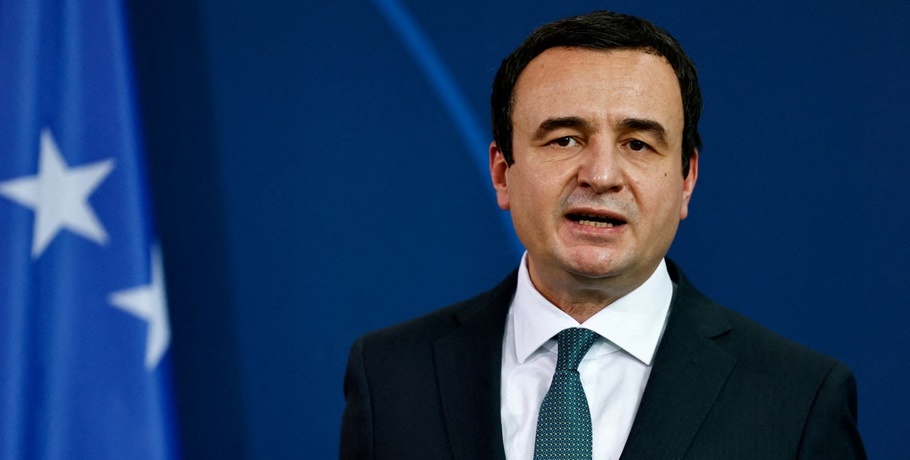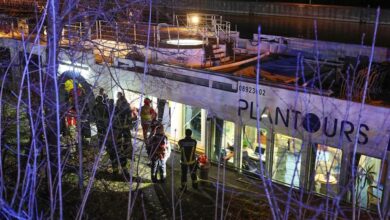
Prime Minister Kurti blames the Serbian President for the escalation.
In the dispute over entry rules, the government in Kosovo has accused neighboring Serbia of attempting to destabilize the country. Demonstrators in the Serb-dominated areas of northern Kosovo blocked roads and fired shots, the Kosovar government said. She accused the neighboring country of inciting people to do so. The planned tightening of entry rules has been postponed by four weeks and is now to be implemented from September 1st.
In cooperation with international allies, his government promises to suspend the implementation of the measures for 30 days, Prime Minister Albin Kurti said on Twitter that night. The prerequisite is that all barricades are removed and complete freedom of movement restored.
The authorities in Kosovo had decided that vehicles entering the country from Serbia would have to mount Kosovan license plates at the border. Serbia is already demanding that drivers from Kosovo replace their Kosovan license plates with Serbian ones. Kosovo also plans to ban its Serb minority from using only Serb identity cards when crossing the border.
Kosovo blames Serbia for protests
Yesterday, militant Serbs erected barricades in the predominantly Serb-populated north of Kosovo. Prime Minister Kurti and President Vjosa Osmani blamed Serbian President Aleksandar Vucic for the protests against the new regulations. Osmani wrote on Facebook that Vucic’s attempts to destabilize Kosovo would fail.
The Serbian President accused the Kosovo government of inciting tensions. He accused Kosovo of presenting itself as a victim. Kurti is trying to be seen in the same light as Ukrainian President Volodymyr Zelenskyy, he said.
The NATO-led peacekeeping mission in Kosovo (KFOR) said it was monitoring the tense situation in the north. She is ready to intervene if stability is threatened. The mission, which involves around 3,800 soldiers from 28 countries, is led by NATO and supported by the United Nations, the European Union and others.
Kosovo was part of Serbia until an armed uprising by the Albanian majority in 1998 and 1999 was bloodily crushed. A NATO operation to drive Serbian troops out of Kosovo ended the war. Serbia refuses to recognize Kosovo’s 2008 declaration of independence.
‘To join the EU, Serbia must resolve Kosovo issue’
Kosovo Prime Minister Avdullah Hoti tests positive for coronavirus

